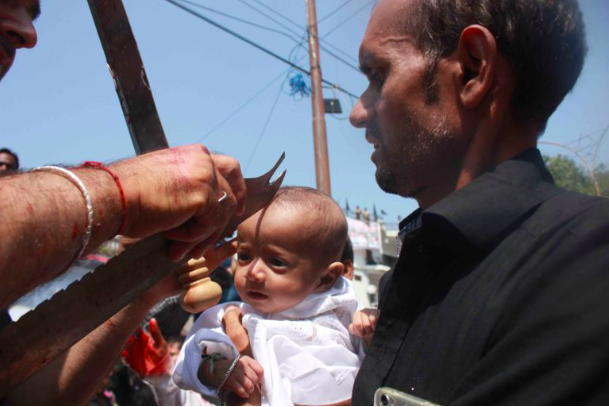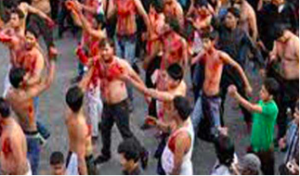The reality of Karbala – A battle woven around greed and imperialistic designs



Today is 10th Muharram, a day mourned heavily by Shia Muslims all over the world. To give some background on why they mourn, Hussain who was the grandson of Muhammad was killed along with many family members at the hands of the army of Yazeed bin Muawiya, who was also a Muslim, and a second cousin of Hussain. The Battle of Karbala took place on Muharram 10, in the year 61 AH of the Islamic calendar (October 10, 680 AD). between a small group of supporters and relatives of Hussein, and a larger military detachment from the forces of Yazid II, the Umayyad Caliph. The battle took place because Yazeed dishonoured a treaty for governance which mentioned a transfer of leadership, Khilafat of the territory, to Hassan after Muawiyah was dead. Hassan was the brother Hussain who was murdered by one of his wives.
What we also need to know is, there was a tradition of selling and buying tenures of rulership and governorship in Islam. There are many incidents mentioned in books of history whereby money was taken as a way of settlement of leadership feuds. So, in this case too, according to Tabari volume 18, Muawiya was supposed to pay 5 MILLION DIRHAMS to Hasan from the Treasury of Kufah a part of the settlement over governance of Kufa.
Now after a while, Muawiyah may have got tired or suspicious of Hasan’s long-term intentions and may have thought that he would want to reclaim the throne at a later date. According to sources, Muawiya prepared one of Hasan’s wives to poison him. And his wife Ash’ath Bin Qays Al –Kindi was promised 1 lakh Dirhams and marriage with Yazeed in return. This is how the grandson of the Prophet of Islam lost his life.
Unlike Hassan who was not really a warrior and wanted to be left alone with money and his vast harem of women, Hussain had definite designs to be the king. He was unhappy with Hassan at handing over the caliphate to Muawiya. As Hasan was the older of the two brothers, he played diplomatically during Hasan’s life, showed allegiance to Muawiyah too. Perhaps he accepted the stipends to show that he was satisfied with the arrangement. Muwaiyah also extended regards and respect towards Hussain. After Hasan’s death, Muawiya appointed his son Yazeed as crown prince for the purpose of the caliphate. Hussain’s imperialistic designs could not stand this. He along with Abdul Rahman Bin Abi Bakar and Ibn Zubair refused to pledge allegiance to Yazid’s right to caliphate willingly. But Muawiya forced and coerced them into this act.
After carefully analyzing the narrations presented by these sources, we can understand how the Battle of Karbala was fought for nothing more than power and greed for money. Although the Shia sources have tried their best to justify the act by Hasan and Hussain, of accepting a large amount of money from Muawiya, this was clearly a case of financial and territorial supremacy. There is a lot of debate on one party being the perpetrator and the other, the family of Muhammad’s grandson, being the victims who were brutally murdered. However, many other accounts confirm that these were the common tactics of war applied by Muhammad and his men on their opponents too. So we can safely assume that the Battle of Karbala was also an extension for territorial wars. And that there is indeed nothing pious or sacred about it.
DISCLAIMER: The author is solely responsible for the views expressed in this article. The author carries the responsibility for citing and/or licensing of images utilized within the text.
